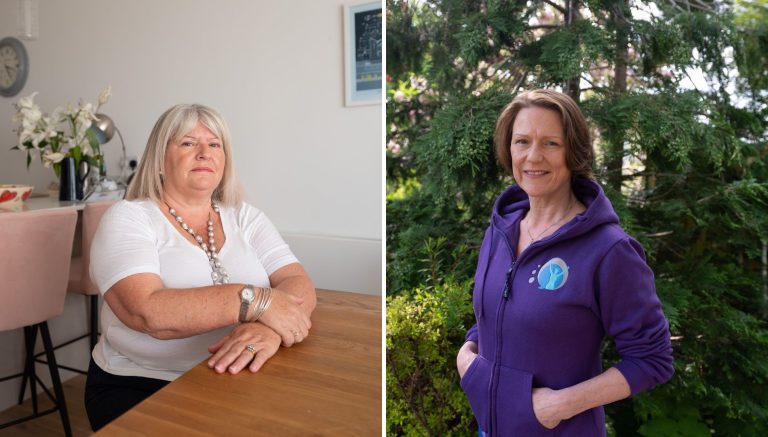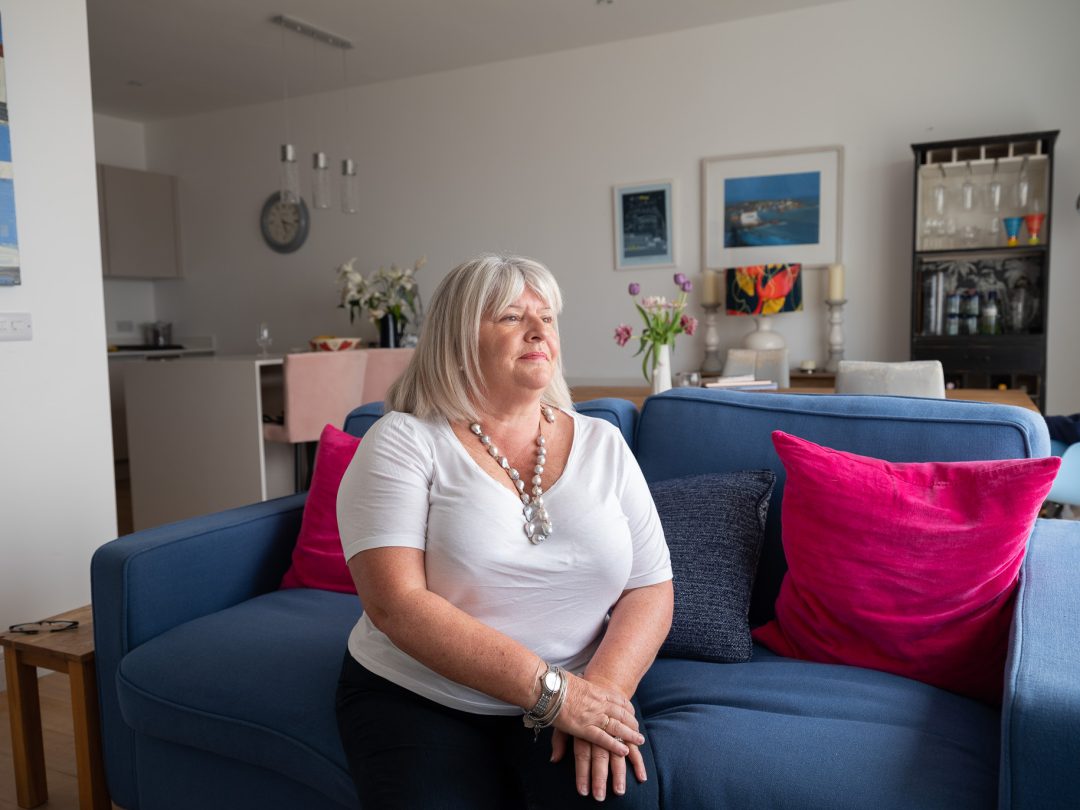The menopause leaves some women struggling to work. But what can be done about it?

Photos: Izzy de Wattripont
Angela* is an experienced senior manager in Bristol’s public sector, who is known for getting results and being ruthless in a male-dominated environment. But for the last four years her menopause symptoms of chronic pain, anxiety and brain fog have peaked resulting in her being diagnosed with burnout.
She’s currently on sick leave from her job and feels unsupported by her manager and HR department. “There is a menopause policy in place but every time I have raised the subject of reasonable adjustments I have been met with resistance and made to feel as though I am making a fuss,” she tells the Cable.
Angela says her line manager turned down her request to compress her working hours because it would “set a negative precedent for other managers”. Still experiencing symptoms and trying to get her hormone replacement right, she doesn’t feel ready to return to work.
“I just feel so let down and with nowhere to go for support,” she says. “After years on the wrong type of HRT [hormone replacement therapy] I am only just beginning to get myself well. I can’t afford not to work but I don’t feel like I am being supported to return,” she says.
Sadly her story isn’t unique. Some women seem to cruise through with very few side effects but for others, menopause is an all consuming, life changing process forcing them from the workplace and leaving them in a financial crisis.
I hadn’t slept for years and I was consumed by anxiety and fear. I turned up for work everyday masking these feelings. I honestly thought I had dementia at 37
The menopause has entered the national conversation lately, highlighted by things like Davina McCall’s: Sex, Myths and The Menopause documentary and Carol Vordamen taking to parliament to speak on menopause in the workplace. But the likelihood of reform was short lived when earlier this year the government declined to make menopause a protected characteristic under the 2010 Equalities Act. Equalities Minister Kemi Badenoch likened the request to that of a short person asking to be seen as short.
Legal changes may have to wait. But in the meantime, the Cable spoke to women across the city about their experience of the menopause and what needs to be done to support women in the world of work.
Getting employers to offer support
“I fell down the menopause black hole,” says Becky Batt, a Unison union rep at Bristol City Council. Becky had worked at the council for years when in 2016 she found herself experiencing a devastating depression with no obvious trigger.
“I was experiencing suicidal thoughts and felt as though I couldn’t continue in work.” Becky, who was in her early forties at the time, visited her doctor who pointed out the likelihood of her symptoms being related to menopause.
“I wrote to the council’s HR department to ask what policies were in place for women like me, only to find out there were none.” Becky says it was her caseload of women, all of a similar age who had either been reprimanded for long-term sick leave or had left their roles entirely, that made her push for the council to provide better support.
“There were just too many women of a similar age who were having long-term health issues, departmental grievances and leaving their roles, for it to be coincidental,’ she says. “It really broke my heart.”
Becky’s campaign for better menopause care at work was met with enthusiasm after she went on a training course and set up focus groups within the council. “The response was great, 120 women all in the same situation came forward saying they needed more support.”
Off the back of training and research Becky went on to work with the council’s HR department to set up health and wellbeing plans and menopause training.
So how well are these working in practice? “I am proud to say the Health and Wellbeing Plan is an effective and robust way to drill down into what women need in terms of support,” she says. “It’s fluid and not fixed, meaning it can be updated regularly.”
“My caseload was previously 75% menopause-related and is down to less than 5% a year. Our menopause group now has over 400 members who support each other, and offer advice on things like symptoms and HRT shortages,” Becky says.
“Asking employees what they need and working with them to ensure they get the right support really works.”
Professor Vanessa Beck with University of Bristol began researching menopause and its social and economic impact back in 2017. Since then she has helped create and cultivate what a good menopause policy looks like, including advising the council on its health and wellbeing plan.
“I have somewhat changed my mind about what a good policy looks like over the years,” says Beck. “A policy stipulates something must be implemented by a line manager and in hindsight without women driving these policies forward and championing them, they have the potential to collect dust on shelves.”
“What really drives a good policy and holds businesses accountable is the culture surrounding menopause,” she adds. “Making it person centred and less of a taboo subject while also allowing for nuance.”
However, Angela’s case shows that menopause policies may exist but need to be put into practice.
Using personal experience to support others

The Cable spoke to women who have used their experience to support others. One is Lauren Chiren, now 53, who walked out of her job in Bristol as a financial executive aged just 37. At the time of leaving her job, with no idea how she would pay her mortgage, Lauren says her symptoms were so severe she would pass out at work.
“I didn’t know what was wrong with me and couldn’t remember anything.” she says.
“I hadn’t slept for years and I was consumed by anxiety and fear. I turned up for work everyday masking these feelings. I honestly thought I had dementia at 37! And by the time I found out what was causing it, I was out of work and post menopausal.”
Since being alerted by her GP to the driver of her debilitating symptoms, Lauren has dedicated the last 17 years of her life to improving her knowledge on reproductive health and now supports women and girls with theirs. In her role as a menopause coach she supports businesses in providing better training and support for their employees. She also offers a free training course to anybody who wants to learn more about the impact of menopause.

Hazel Hayden, founder of Bristol Menopause Clinic, had been working as a nurse for eight years when she left her job because of suicidal thoughts brought on by menopause.
“I was working in a role supporting patients with menopause symptoms and nobody was supporting me,” says Hazel, who felt her request for support was ignored.
“Working in the NHS you expect to be supported with your health, but unfortunately I wasn’t. My husband and I had to adjust our lifestyle completely so we could afford to live until I got support and found a job with more flexibility.”
Both Lauren and Hazel have since used their experience to build their careers around the menopause. Hazel offers private menopause care in her Bristol clinic including supporting women to remain in work and manage their symptoms. She hopes to offer community interest services at the clinic in the imminent future that would provide low-cost support.
With waiting lists for outpatient appointments in Bristol’s NHS hospitals currently at a minimum of 21 weeks, it’s vital that open conversations are happening within the workplace. But the women we spoke to say that in order to have those conversations they must first feel confident they’ll be supported by their employers.
*Not her real name















Report a comment. Comments are moderated according to our Comment Policy.